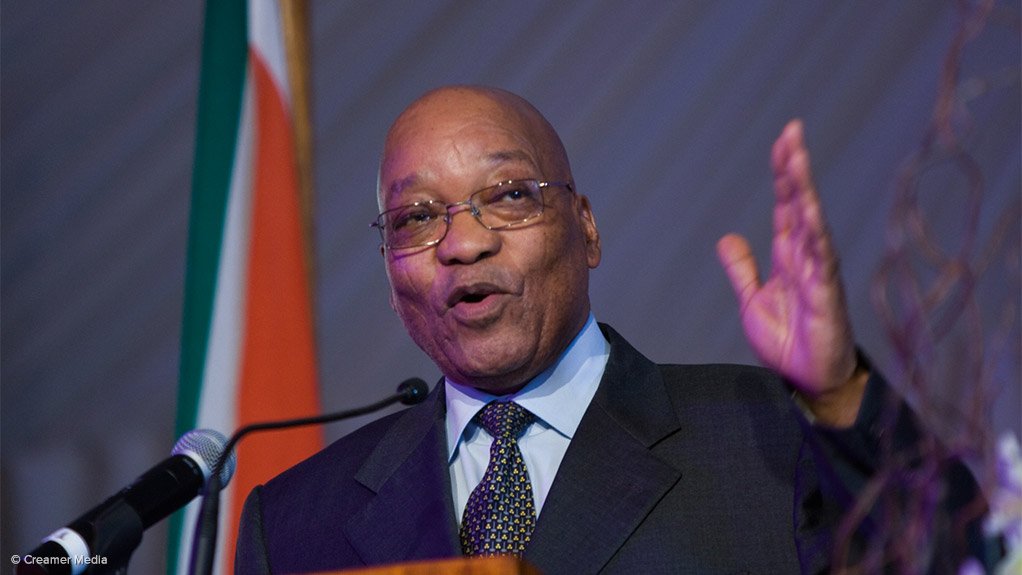/ MEDIA STATEMENT / The content on this page is not written by Polity.org.za, but is supplied by third parties. This content does not constitute news reporting by Polity.org.za.
President Jacob Zuma today, 30 April 2015, convened a meeting of the Presidential Infrastructure Coordinating Commission (PICC), attended by Deputy President Cyril Ramaphosa, Members of Cabinet, Premiers, metro Mayors and leaders from the South African Local Government Association (SALGA).
The meeting received reports on construction progress across the full public infrastructure project pipeline, organised through 18 major Strategic Integrated Projects (SIPs).
More than 220 000 direct jobs are being supported by the projects currently coordinated by the PICC, covering road-build, ports, rail-lines, social infrastructure (clinics, hospitals, schools, colleges and universities), energy-plants, dams and pipelines, broadband rollouts and household connections (electricity, water, sanitation and communications).
A number of milestones were noted. One of these was the imminent completion of the 100th school built through the new national school-build programme that was introduced to address backlogs.
The main focus of the meeting was on the long-term water and sanitation needs of the country and the steps being taken to address them. Six major dams will be expanded or built over the next decade, including a dam on the Mzimvubu River in the Eastern Cape, expansion of the Clanwilliam Dam in the Western Cape, the Nwamitwa Dam and Tzaneen Dam in Limpopo, the Hazelmere Dam in KwaZulu-Natal and the Polihali Dam in Lesotho (that will principally provide water for Gauteng).
Progress reports were given on the building of water pipelines, treatment plants and systems to connect local households.
One of the challenges to be addressed with water supply is the separation of functions between different spheres that result in dams being completed by national government but delays at local level with water reticulation systems. Council agreed to have a more coordinated system from 'source to tap' to ensure that communities have access to water more expeditiously.
The meeting also received its first detailed report on the challenges in sanitation and the plans to roll out adequate sanitation systems for communities without proper sanitation systems.
Thirty-nine renewable energy plants have been opened with 1 897 megawatts of renewable energy coming onto the grid. These solar, wind or hydro plants have been a critical support to address the energy shortages caused by delays in the new coal power stations coming on-stream.
Regulatory delays have been improved through efficient issuing of water use licenses and more focused environmental impact assessment processes. However, Council noted that a number of court challenges to procurement and other processes had resulted in delays in infrastructure rollouts.
The PICC received a report on the steps taken to address cable and metal theft. Council emphasised the seriousness of the crime and the determination of all three spheres of government to act strongly against such theft, which disrupts electricity, water supplies, transport systems and social infrastructure.
Amendments have been drafted to strengthen the legislation dealing with theft from the public infrastructure programme. These amendments will go through Cabinet on an expedited basis for finalisation before it is introduced in Parliament.
The steps to address cable and metal theft include tougher bail conditions, tougher sentencing, more resources for detective work and better controls on the trade in scrap metal that creates a market for stolen infrastructure components. In addition to the reforms of laws, consideration will be given to technology solutions to address cable and metal theft and it was agreed to have improved coordination between different state security agencies.
Council emphasised the importance of localisation and the need to support the development of black industrialists as manufacturers of the supplies used in the infrastructure programme.
Note to editors: The PICC was formed to coordinate a multi-billion public infrastructure programme and brings together the three spheres of government. The PICC is chaired by President Zuma and the work of the PICC is governed by the Infrastructure Development Act.
Issued by The Presidency
EMAIL THIS ARTICLE SAVE THIS ARTICLE
To subscribe email subscriptions@creamermedia.co.za or click here
To advertise email advertising@creamermedia.co.za or click here











